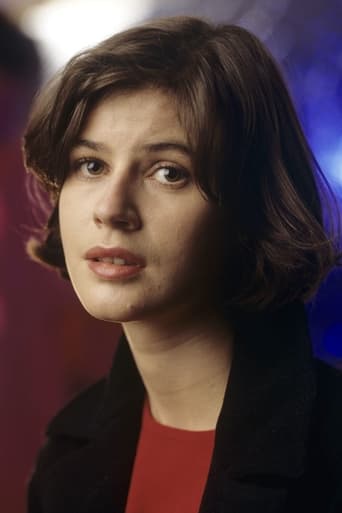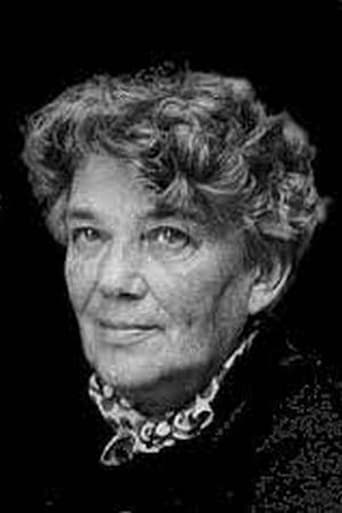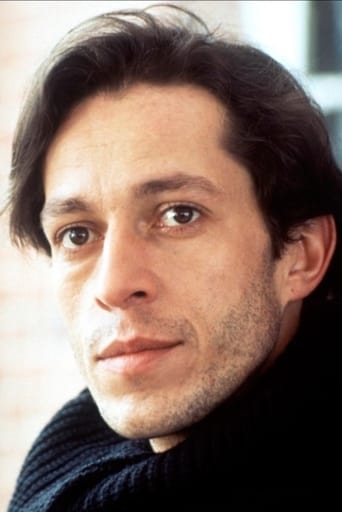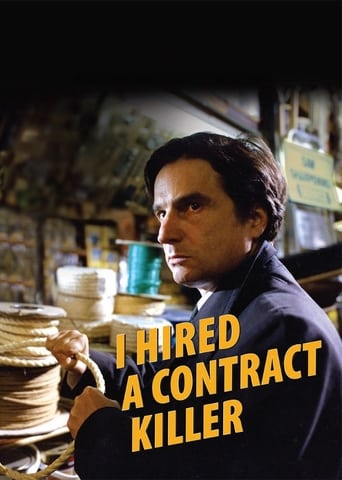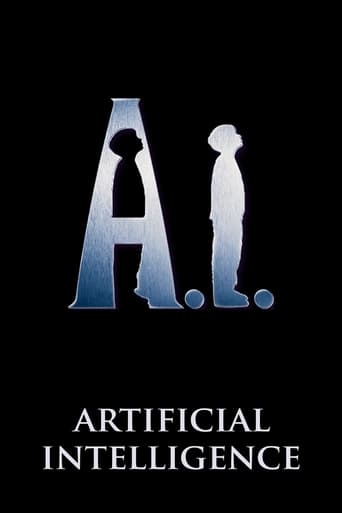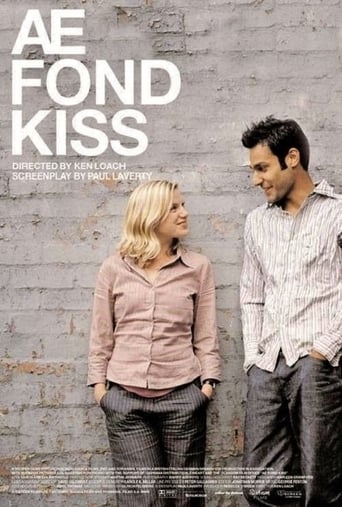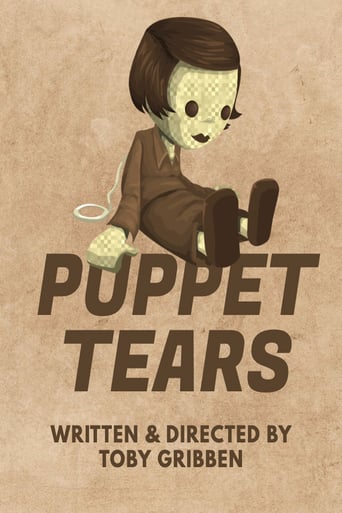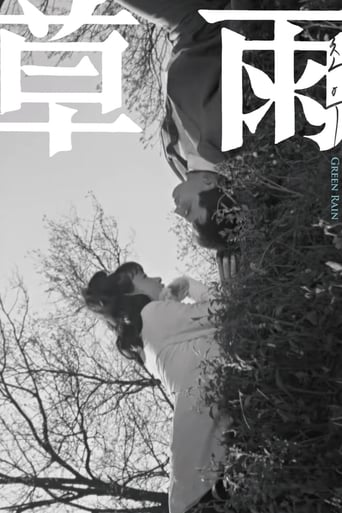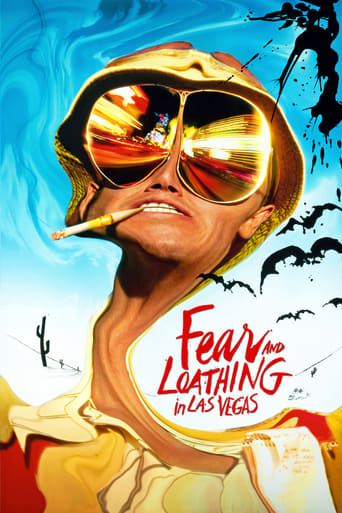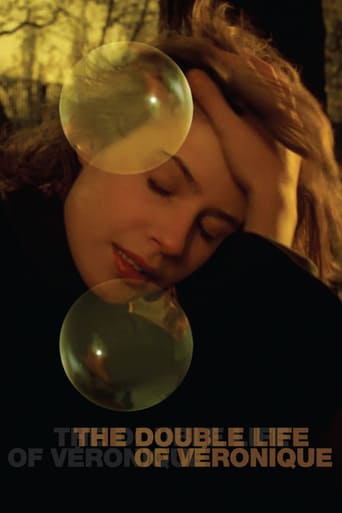
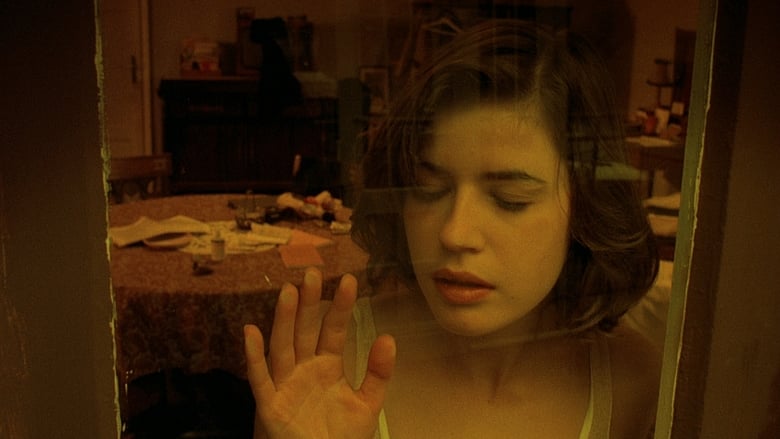
The Double Life of Véronique (1991)
Véronique is a beautiful young French woman who aspires to be a renowned singer; Weronika lives in Poland, has a similar career goal and looks identical to Véronique, though the two are not related. The film follows both women as they contend with the ups and downs of their individual lives, with Véronique embarking on an unusual romance with Alexandre Fabbri, a puppeteer who may be able to help her with her existential issues.
Watch Trailer
Cast
Similar titles
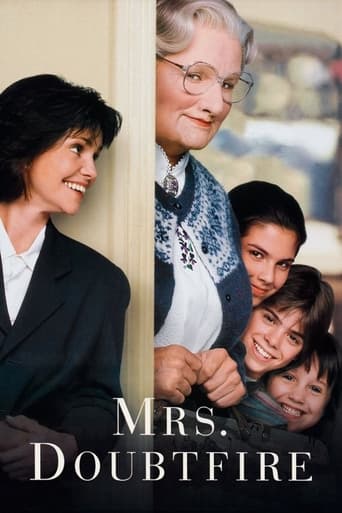

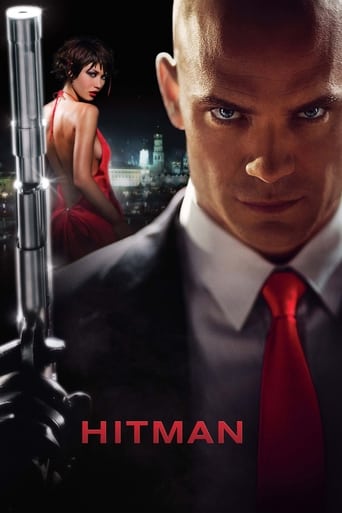
Reviews
Just perfect...
Absolutely Fantastic
This is a tender, generous movie that likes its characters and presents them as real people, full of flaws and strengths.
The film's masterful storytelling did its job. The message was clear. No need to overdo.
Starring Irene JacobDirected by Krzysztof KieslowskiWritten by Krzysztof Kieslowski and Krzysztof PiesiewiczImagine if each of us is matched somewhere in the world, by our exact double - someone to share our thoughts and dreams.I loved this one. It is quirky, different and beautifully shot. There are no car chases or murderers on the run, just a wonderfully crafted and mesmerizing movie. It's a work of art as much as it is a movie and it had me glued to the screen. This was right up my alley, it's just the kind of oddball, quirky thing that I enjoy.Brilliantly acted by Irene Jacob and she is incredibly beautiful as well. I can't praise this enough. I must watch more foreign movies, especially directed by Krzysztof Kieslowski.Mesmerizing 10/10
The Criterion DVD for The Double Life of Veronique includes many of the bells and whistles when it comes to special features, not to mention a long, in-depth interview with the director, Kieslowski. Maybe I'll watch that some time soon, but not right after watching this film. I could go looking for some easy answers - if there are any, which I doubt anyway - but I'd rather stay for now in a moment where I can just ponder everything I watched. It's such a rich and moving experience, and is one of the most unique mystery films I've seen in a very long time - possibly ever.In a way its chief mystery is what it's all about, which remains, possibly, elusive even to the end. Of course we have an idea of the concrete fact that there were two babies born on the same day in different countries, France and Poland, and they grew up to be beautiful young women with dark hair and brown eyes, and looked exactly the same. There's also a moment where the two see each other (one sees the other on a tour bus in Krakow, this in the midst of a protest/riot in the streets, and yet this other woman on the bus won't see her, at least not yet). Will they try to look for one another is a key question.But Kieslowski is so not interested in anything conventional here. The mystery is about discovering things, but not necessarily the deeper mystery of one knowing for sure the other exists; in other words, this isn't one of those double movies like, say, The Double (2014). We really get two stories here of these women, and they're full-on character portraits: the first half hour is dedicated to Weronique, the Polish woman, who is a professional singer (and former piano player) who has a heart condition. The rest of the film focuses on Veronique, who is a music teacher and, after seeing a puppet show performed by a charismatic man named Antoine (or is it Alexandre, one of those), he starts to... stalk her? Follow her in an intriguing way? Certainly he leaves clues for her to find, and when she does... then what? I'd like to make note for a moment music in the film. I don't think it's some flippant "artsy" choice on the filmmaker's part that each of these people are involved with music. Music is so central to the film, especially when Weronique is singing and becomes her most vulnerable, but also in those moments (on the flip-side image, so to speak) where Veronique isn't paying as close attention to the music she's teaching her students. Notice the opera that Weronique sings comes back more than once, like when Veronique is watching the marionette show. There is significance there, and it may be rooted back into that realm that music can lie with every person - like romance, which this film has, you can't always use the utmost logic ('the heart wants what it wants' so to speak) so why a music moves one person won't necessarily be the same for another. Why is music so paramount for Weronique, while for Veronique it doesn't seem so? Or, is music one of the things that connects them in that elusive, deep-deep down inside sense that they both have? Or maybe they're latent Jedis or something (I kid).How this is all filmed is completely absorbing; Kieslowski uses hand-held camera-work, but in a steady way that often creates tension, like when the two Veroniques are walking out in public (i.e., French side after she leaves her rendezvous with this not-so-mystery man and tries to go through crowded streets, and the Polish side after a rehearsal, where her heart becomes weak and she stumbles to catch her breath). How he uses color is especially breathtaking as well, and not always in ways that forces it but suggests things - red filters and bright whites and yellows here and there (not as blatant as the Colors trilogy, but maybe this was a practice round). So even when things get so enigmatic that it could, in just a few moments, become pretentious, Kieslowski reels it back in and makes the direction vital and important in ways that are unexpected. The camera itself is often another character, which is impressive.I've come all this way and haven't noted that without Irene Jacob this might all not work, or at least as well. There may be a moment here and there where it doesn't seem like she's doing much - she's so beautiful (on the cover I thought for a moment it was Ingrid Bergman with her eyes closed) that one might underestimate how deep and powerful she gets into both these women. The vulnerability is what's so staggering, and how much she feels the moments of joy and wonder, how her face registers genuine curiosity and in seeking out this mystery, and that crucial scene at the café when this Frenchman is revealed, notice how her face changes - it's subtle, but it's really there. I could watch Irene Jacob in this film or Red and see an actress so in tune with the character(s) that she in a way does half the work for Kieslowski. In other words, even when I was wondering, more than once, 'this storyline, such as it is, is getting a little weird and quixotic, maybe for its own good', she really grounded me in the emotional logic, and the pathos becomes so much that it makes something like a scene near the end this mix of heartbreak and bewilderment that I've rarely seen like this in a film.It's at times confounding, in certain choices and moments, but never in ways that might alienate; Kieslowski asks the audience 'come, a little closer - find out more about these women, and whatever the outcome, the journey is genuine and interesting.'
Two parallel stories about two identical women; one living in Poland, the other in France. They do not know each other, but their lives are nevertheless profoundly connected.Polish cinema is not well-known. France and Italy seem to have the European continent locked when it comes to great films. For Poland, you have Roman Polanski, and he has spent much (probably most) of his career outside the country. But this film is one example of the great things that can come out of Poland.The very concept is interesting. Two people who are very much alike, whose lives influence each other, but live in completely separate places and do not know each other. Is it possible? Probably not. But a great premise, just the same.
The Double Life of Véronique, a poetic masterpiece. This is a film which compels you to read about it more than the time you have watched it for. Krzysztof Kieślowski has made love to the silver screen. The magical use of Red, Green & Golden has taken cinematography to an altogether new level. The awe inspiring music by Zbigniew Preisner, that surely lifts the mood. And finally the most beautiful thing to ever happen to cinema, Irène Jacob. Though the film doesn't have a story that can be put on paper yet it has a hypnotic effect. Can't believe it was made 22 years ago. Those who love real cinema & want to celebrate emotions are in for a treat.
